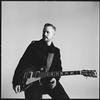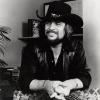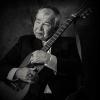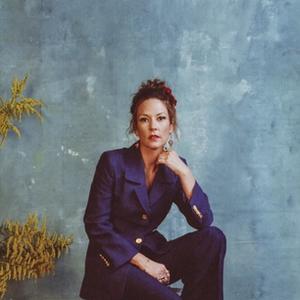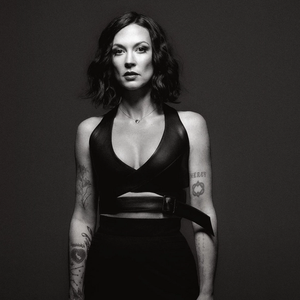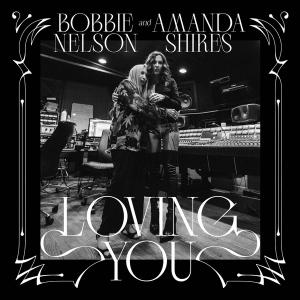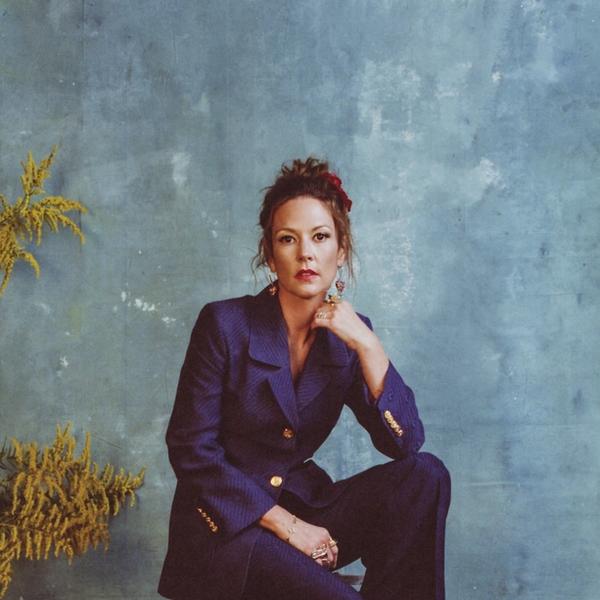




Link copied

The soon-to-be fabled 2020 has left everyone feeling more vulnerable—in ways both tangible and ephemeral. It’s particularly brave, then, that singer-songwriter Amanda Shires felt herself returning to a vulnerable song she started writing last year, refining and readying it to share with a larger audience. But bravery and vulnerability often go hand-in-hand, each requiring the other in order to break a pervasive—and problematic—silence.
After watching women’s rights reduced to mere fumes in many states, Shires funneled her feelings into “The Problem.” The track gives a voice—but not a name—to the emotional complexity surrounding abortion. Shires wrote it about the abortion she had when she was younger, and released it on International Safe Abortion Day, donating all proceeds to the Yellowhammer Fund.
Despite, or perhaps because of, the vulnerability required to write and release “The Problem,” Shires found it wasn’t a song she could sing alone. The resulting duet, which features her husband Jason Isbell, brings an important nuance to the narrative of abortion—that it need not be faced alone. The chorus’ central sentiment is a potent message: “I’m on your side.” In conversations about abortion, that declaration feels powerful, but coming during a year marked with so much hardship, a year when our commonalities—and common vulnerabilities—have become more evident than ever, it serves as a credo.
Having released “The Problem” as a duet, Shires now plans to expand the narrative to include women’s voices. If one person raising their voice starts the conversation, then more raised voices start the movement. Here, Shires speaks about her song, how she’s managed to stay creative during a global pandemic, and why this year’s CMA Awards got her blood boiling.
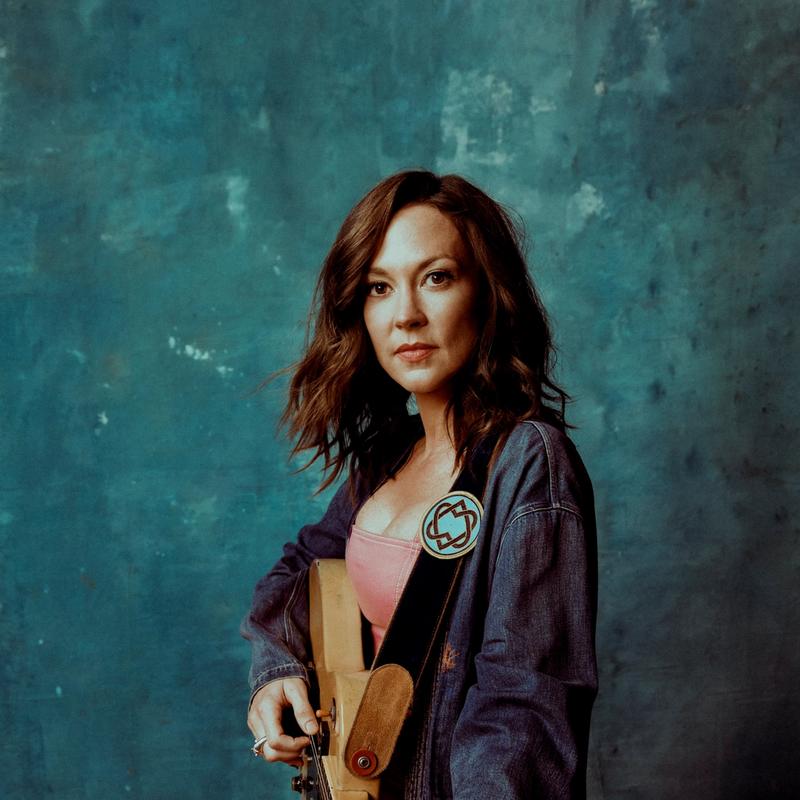
How have you maintained your creativity this year when the larger events of the world and the responsibilities at home feel particularly heavy?
At first, it was difficult to figure out how to be creative, and then as it wore on—and continues to wear on—it’s been like it always has been for me: a way for me to get my feelings out. It’s only been in the past couple of weeks that I’ve been writing new stuff and recording new things. For a while there, it was just...you know, trying to get through it with everybody else.
Does songwriting feel as cathartic now as it once did? Has it been as rewarding?
In some ways it does, and in some ways it doesn’t. I’ve been realizing how much time there isn’t. There’s not really any such thing as wasted time because we spend it all. I think I feel even more in control of where my boundaries are as far as how I’ll spend my time. The time is still the same, it’s just how I’m going to spend it—and my attitude about that is more vigilant.
Do you respond well to those kinds of restrictions around your creativity?
I mean, I’m still here. It’s difficult, I think, for those of us who play out. We have that community, fellowship and this place we get into when we play music. Lately, it’s a little bit of trying to wrestle with that void, but also trying to remember that I’m not the only one feeling like this.
I never took it for granted in the first place, because it’s not like I’m one of those musicians who plays to millions of people every night. As far as handling it, painting helps. An occasional wind bender. That’ll help every once in a while, but you’ll feel real shitty the next day.
I got the strength from noticing how our rights and freedoms were slowly regressing."
Where did you draw the emotional strength to write “The Problem” in the first place?
I started writing it a while back, but I think I got the strength from noticing how our rights and freedoms were slowly regressing. I got the strength to do that by getting angry. I wanted to help, which is why I wanted to give all the money to Yellowhammer because they do a lot for the southeast.
The visibility your story brings to the conversation is so necessary.
It is necessary. It’s all about education. There are so many rules in place, especially around here. When I had an abortion—and when I wanted to I had an embryo, but by the time that I did all the things you have to do, I didn’t have an embryo anymore—it was further developed. It’s between the woman and the doctor. I don’t see why we can’t have telehealth, and make our choices become real.
And it’s not something that women haven’t been doing since the beginning of time. Why can’t we do it safely? If we get rid of Roe v. Wade and everything that’s come since that, we lose a lot more than women’s rights.
It’s hard not to have this internal scream going at all times.
Internal scream! Exactly. Sometimes there are days when you’ve had enough, and you do feel like the scream painting by [Edvard] Munch.
I think it’s so important that it’s a duet, but it didn’t necessarily have to go in that direction. What prompted you to write it that way?
I have two versions of it, one of them is coming later with all women having this conversation. When I was going through this myself, one of my friends was there for me even though she didn’t believe the same way I do, and I think that has a lot to say for our friendships. When it is one-on-one, you can see that it’s not black and white, there are so many shades to consider in the conversation.
To do it as a duet, I think it was important to me. Selfishly, I think having the support of my husband...well, I already have a backbone, but it gave me a feeling of “You’re not doing this on your own.” We’re still here together and everything’s going to be ok. Even in putting out the song, I had somebody saying, “I’m on your side about this.” Sometimes that’s what you need when you’re talking about your own body in front of people.
Right, there are levels of vulnerability and this is certainly up there.
Yeah, and the area of the country where I live is not New York. It’s not progressive, really. I could move to all these places, but then what am I doing for my immediate region? I’m running away.
Jason’s role in the song also adds nuance to our ideas about what this experience looks like. So often we hear from the women who go through it, as we should, but getting a supportive man’s voice broadens the picture.
The more we talk about it, and keep learning about it, the more other people will. There’s a lot wrong with sex education, in my experience. There’s a lot to say, and a lot that needs hearing down here. It’s past the point of abstinence. That ain’t happening. We live in 2020, guys.
There’s a lot wrong with sex education, in my experience. There’s a lot to say, and a lot that needs hearing down here."
You and Jason recently sent back your CMA membership cards because the organization failed to recognize several major deaths this year. Can you tell me more about your decision?
Well, first I would like to say it was never anything we applied to be members of. Jason Isbell and the 400 Unit, which I’m proud to be a member of, was nominated, and when you get nominated, you get a lifetime membership. You get to vote and all that. I started to realize that I need to do more homework. When I got the ballot, I saw only one black person nominated. I was looking at the panels, and there were no black people. Then it kept getting worse.
Jason recorded the show because I was recording, and later I looked at it and I was like, “Ok, they’re going to honor Charlie Daniels, and they’re going to talk about Urban Cowboy, but they’re not going to talk about John Prine? Are you kidding me? And they’re not going to talk about Billy Joe Shaver? Are you joking?” I kept getting madder and madder. There’d likely be no outlaw movement had it not been for Shaver and Waylon Jennings. Then the country artists that have come after, how much influence have these folks had on their music? To me, it was just gross and awful. Take your stupid show on down the road and continue to not do good in the world.
People might be tired of politics, but people love their entertainers, and if their entertainers were doing something, maybe that would encourage more people to follow suit. “No drama.” People are dying, people are going to die, that’s not drama. I mean, there are probably dramatic ways to die, and I’d prefer one of those.
To me, it was just gross and awful. Take your stupid show on down the road and continue to not do good in the world."
Women’s place in country music remains such a contentious issue. How do you feel about the efforts female artists have been making?
The effort isn’t lost. It’s slow, but at least we have a bit more room for women. It takes a lot of people getting mad to make any changes. It can be a lot when you feel alone in doing it. If you don’t feel alone, you feel more likely to speak up. If it was only one person that told their story for the #MeToo movement, it wouldn’t have worked out as well. It’s the same with country music. They make it seem like there’s a competition between women and that there can’t be more than one, but there can be. The divine feminine is women’s collaboration.
Do you have the time to read these days?
Yeah, I like to read The Atlantic, and I just got Leonard Cohen, Untold Stories. I also like to read a little bit of poetry every day.
One of the best pieces of advice I came across was about starting the day with a poem rather than diving headfirst into the news.
I do that every day unless I wake up late, and then I’m scrambled.
Is there a line that’s resonated with you recently?
Oh yeah, “Home to Roost,” by Kay Ryan. It’s about chickens, and I have chickens. She has a line about how they’re always in the way, and if that’s not the truth then I don’t know what is. They are! They’re always under your feet.
Amanda Shires' 'The Problem' is out now. All proceeds from the sale of the record go to the Yellowhammer Fund.
Photography by Alysse Gafkjen
For more on Amanda Shires, see below:


